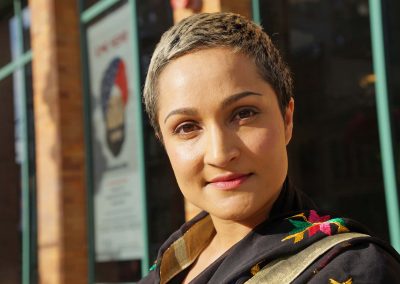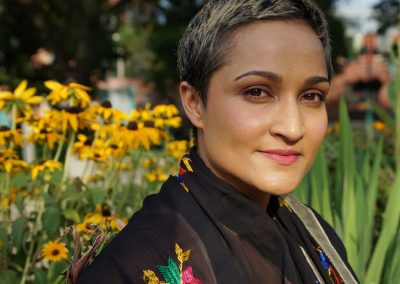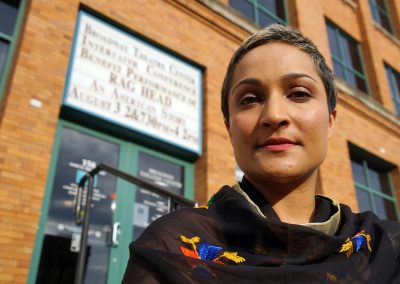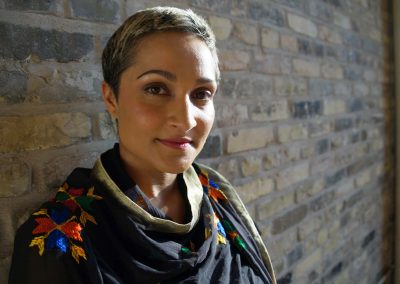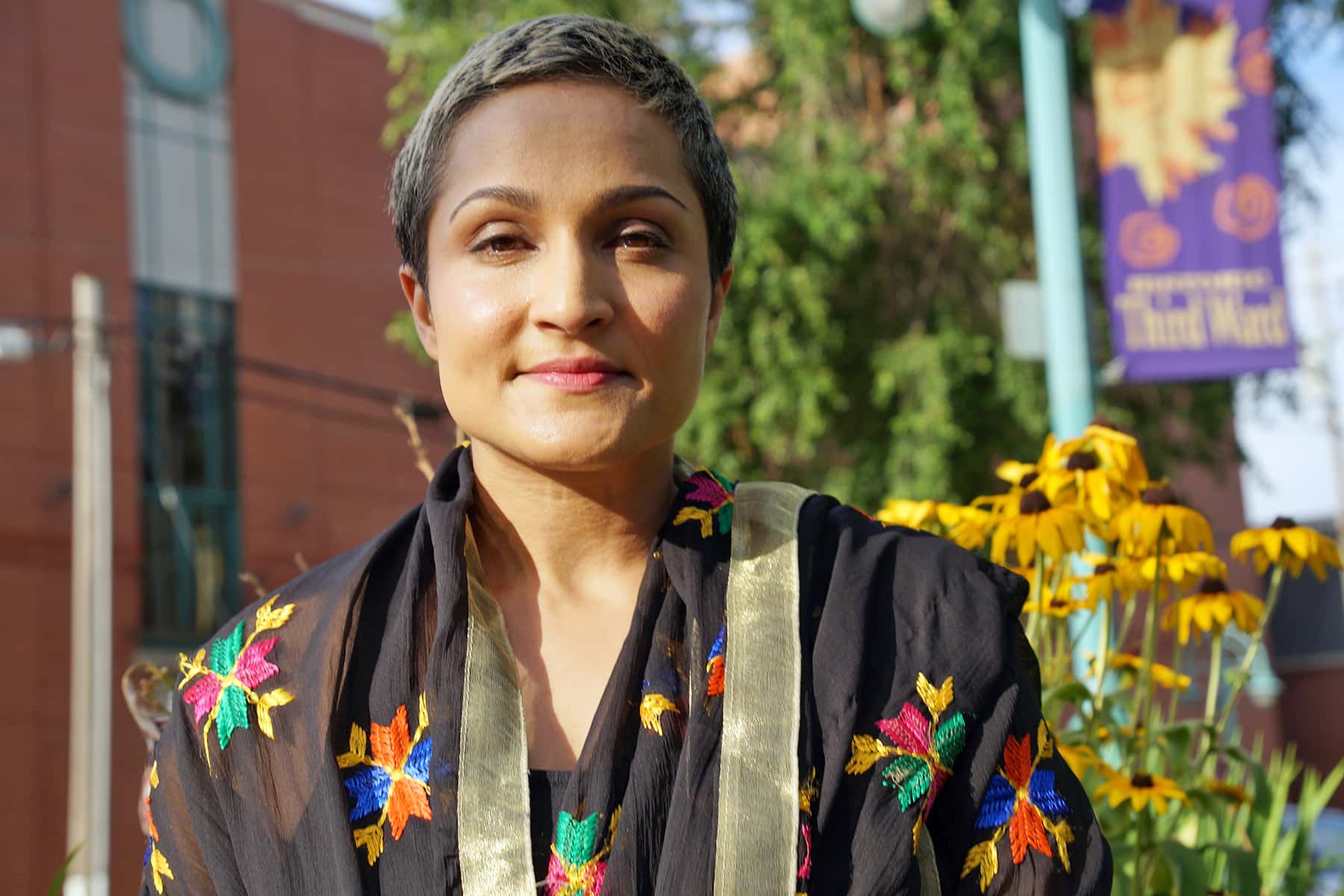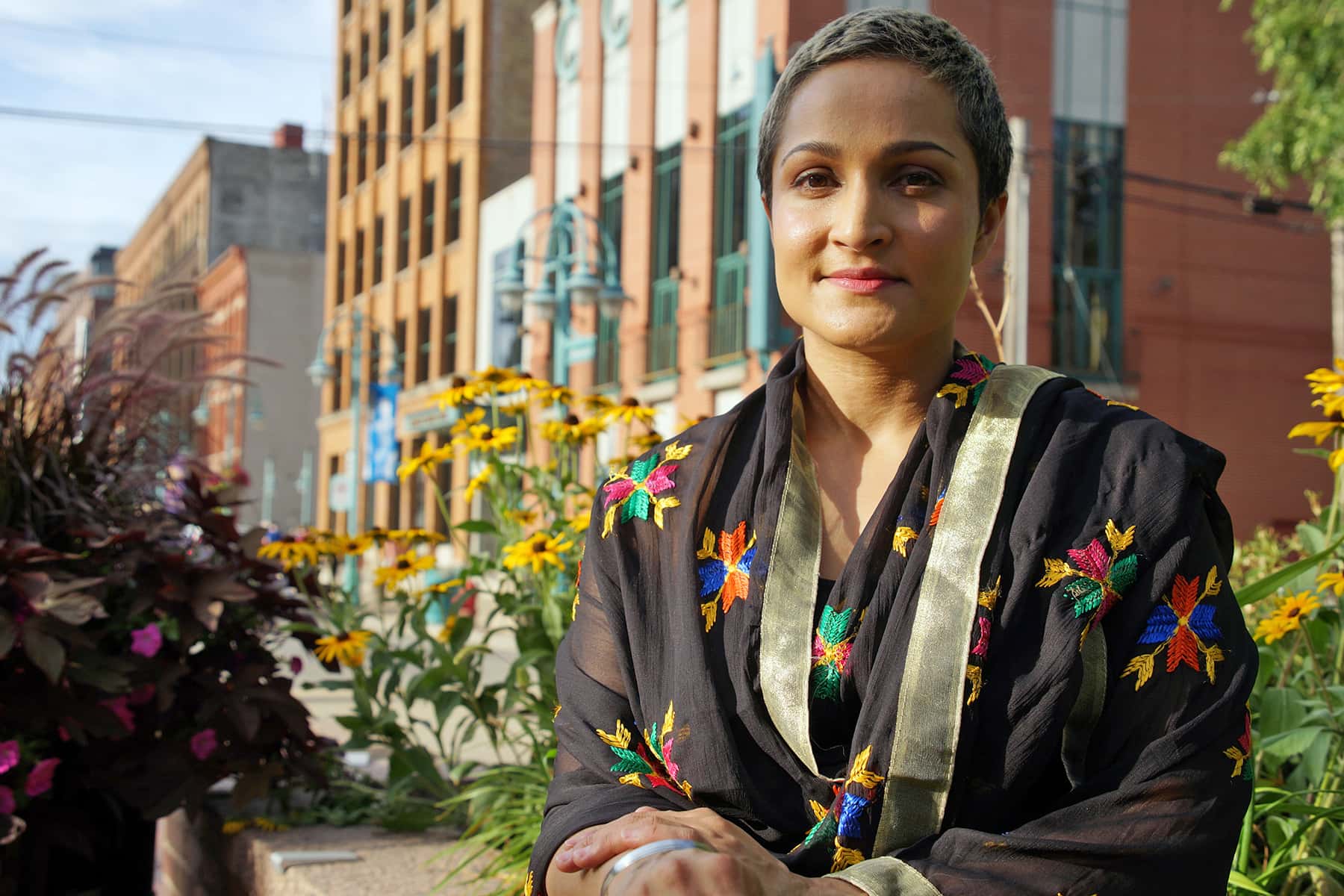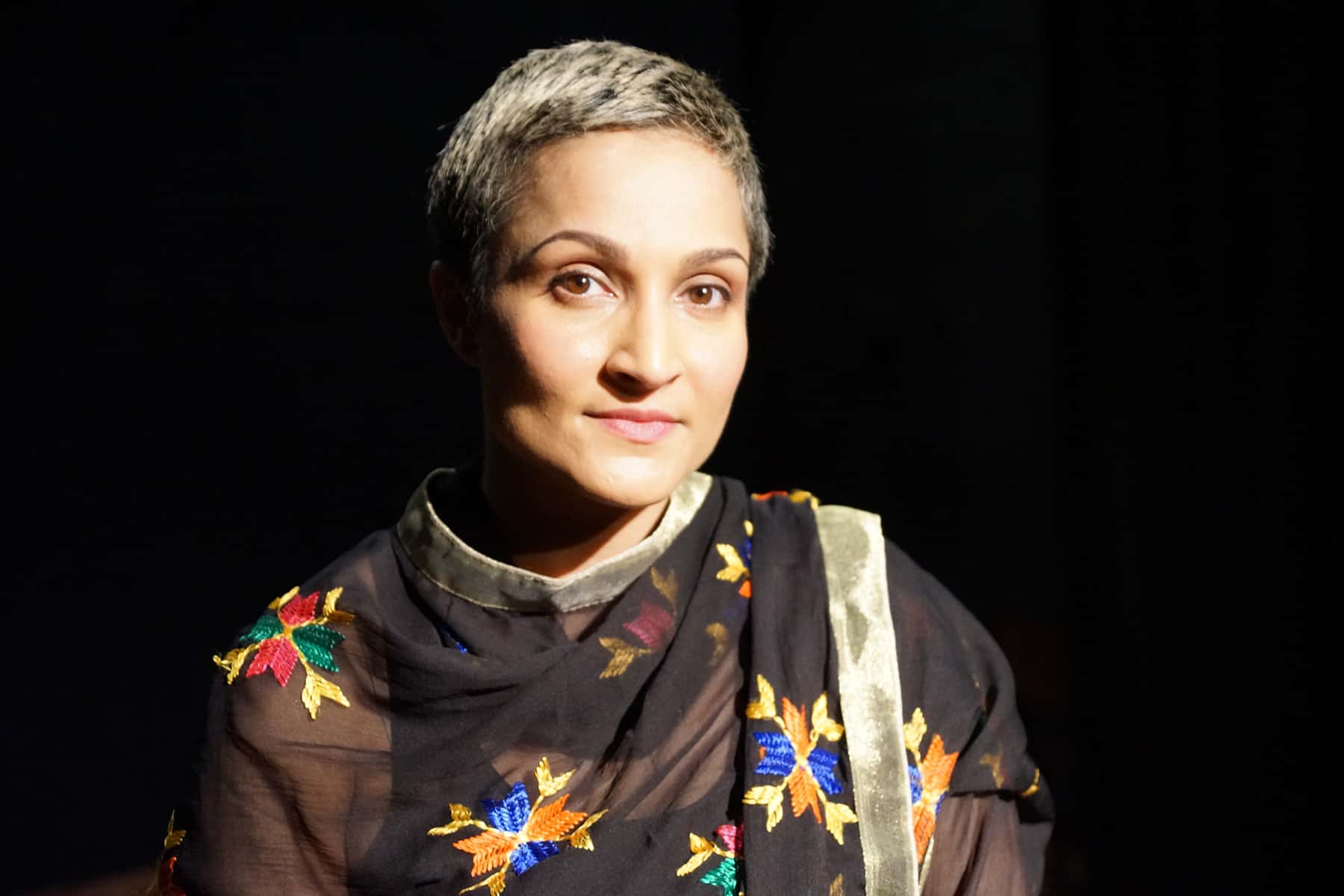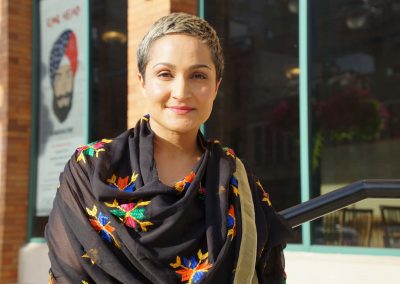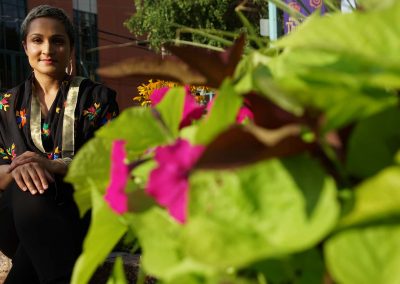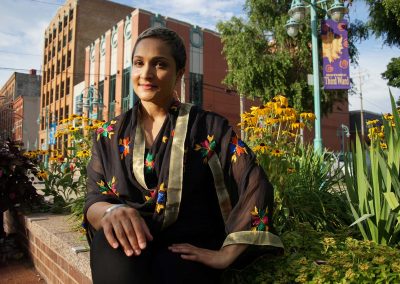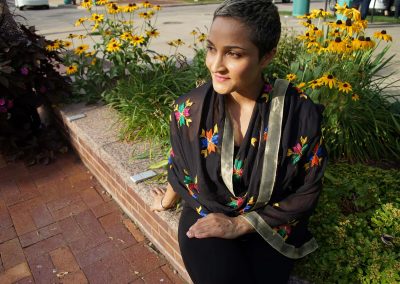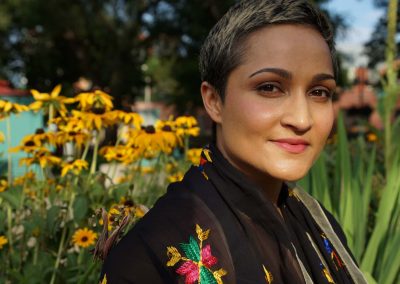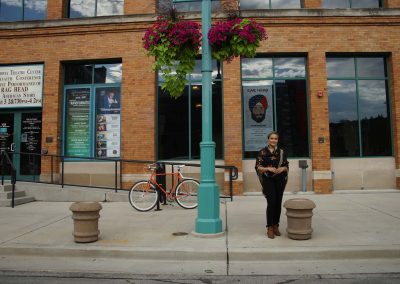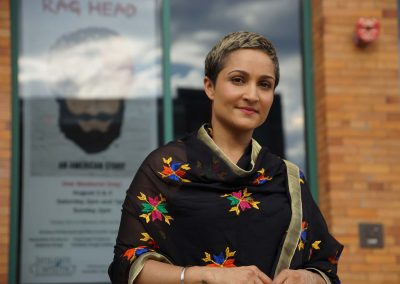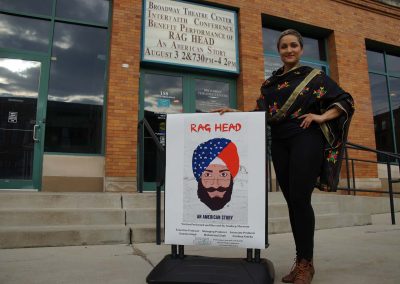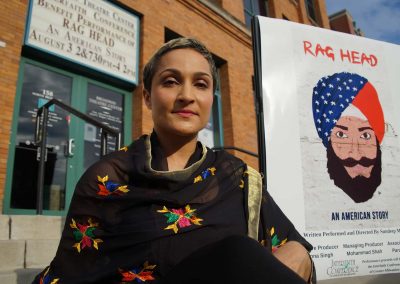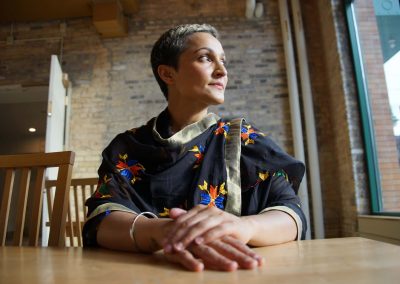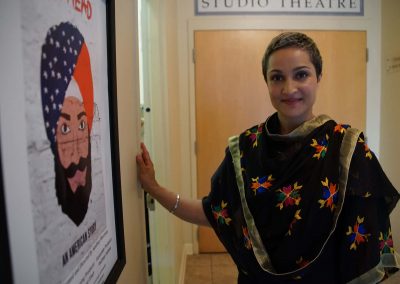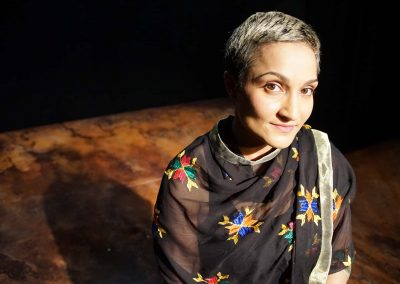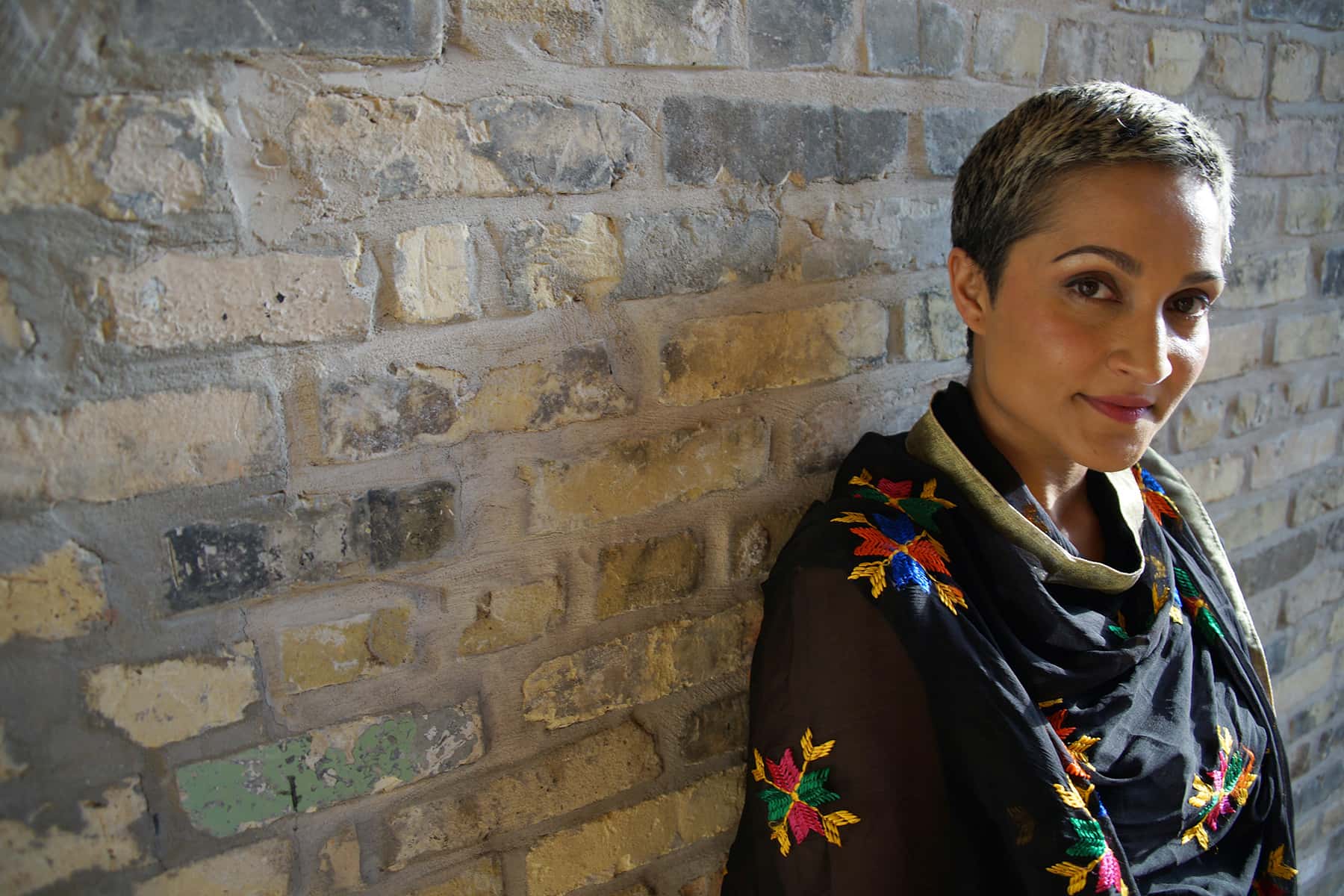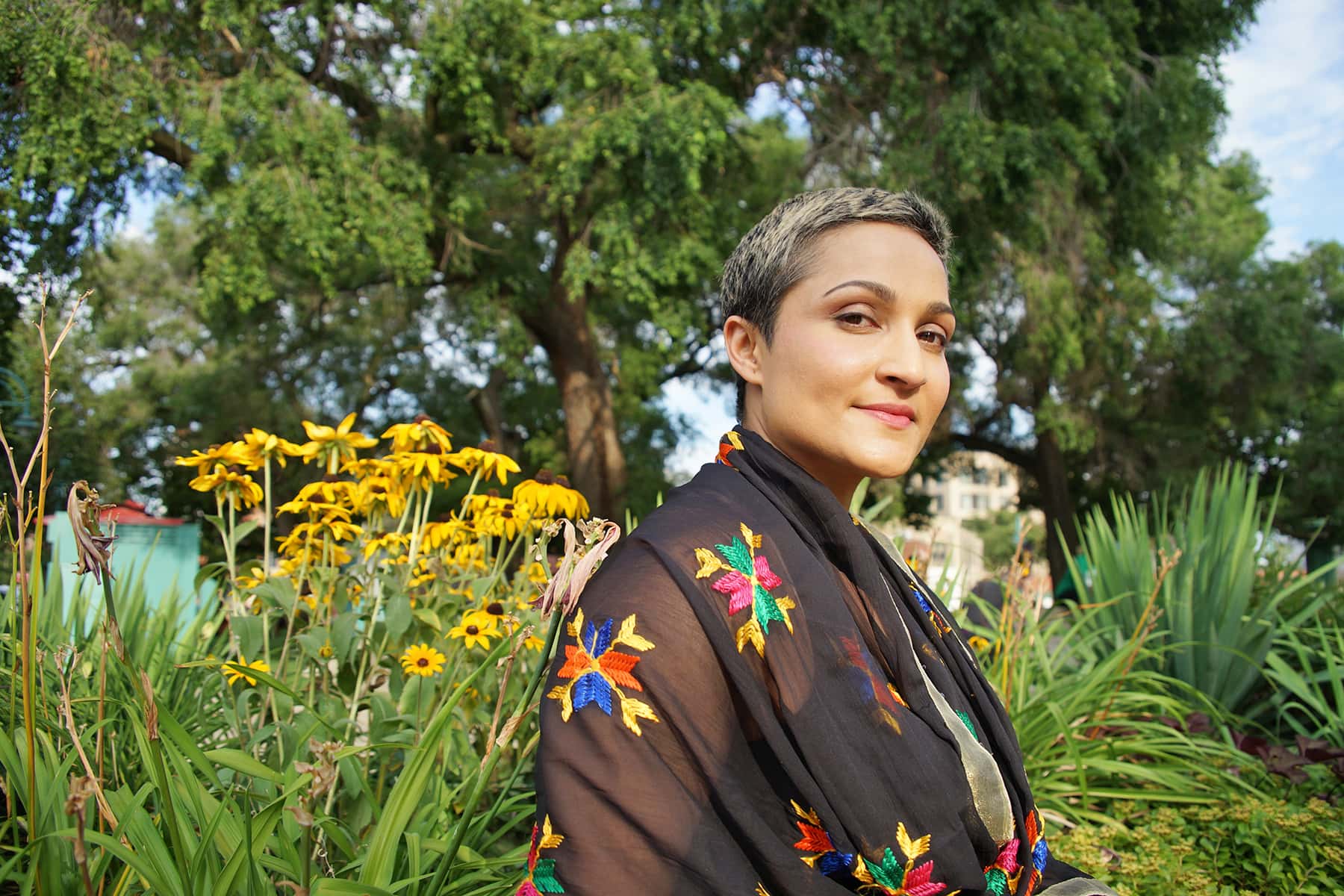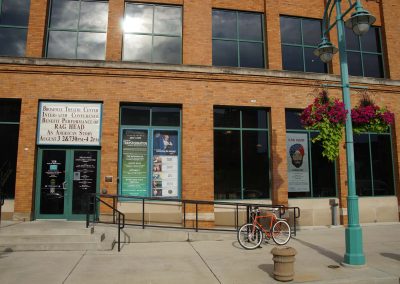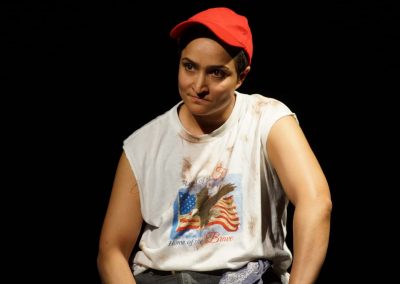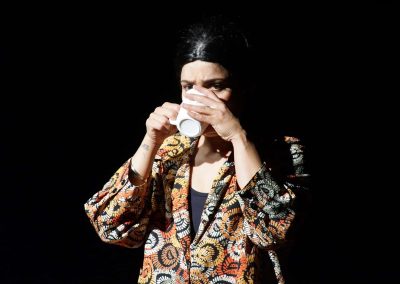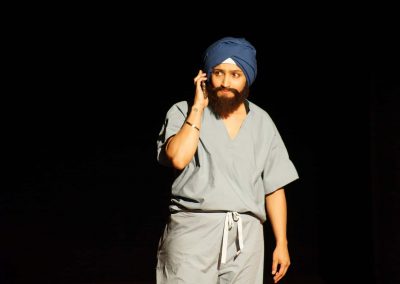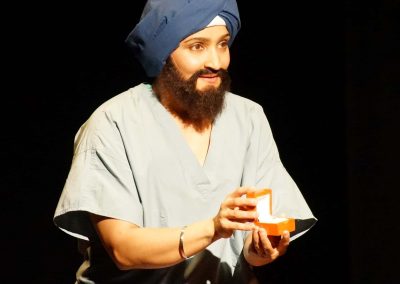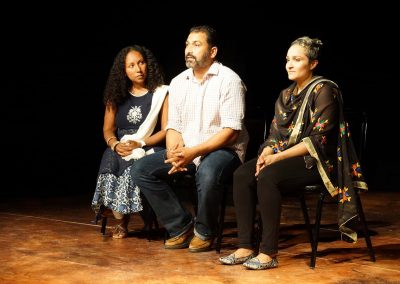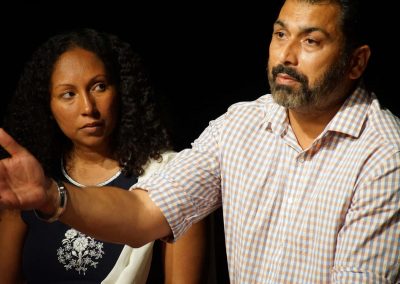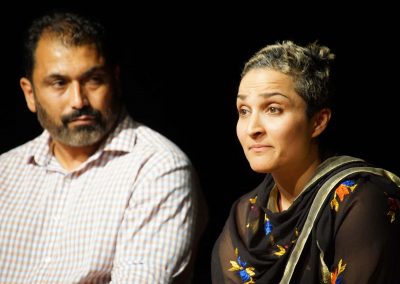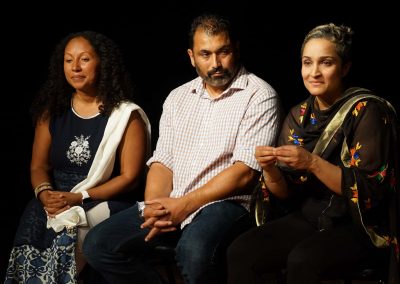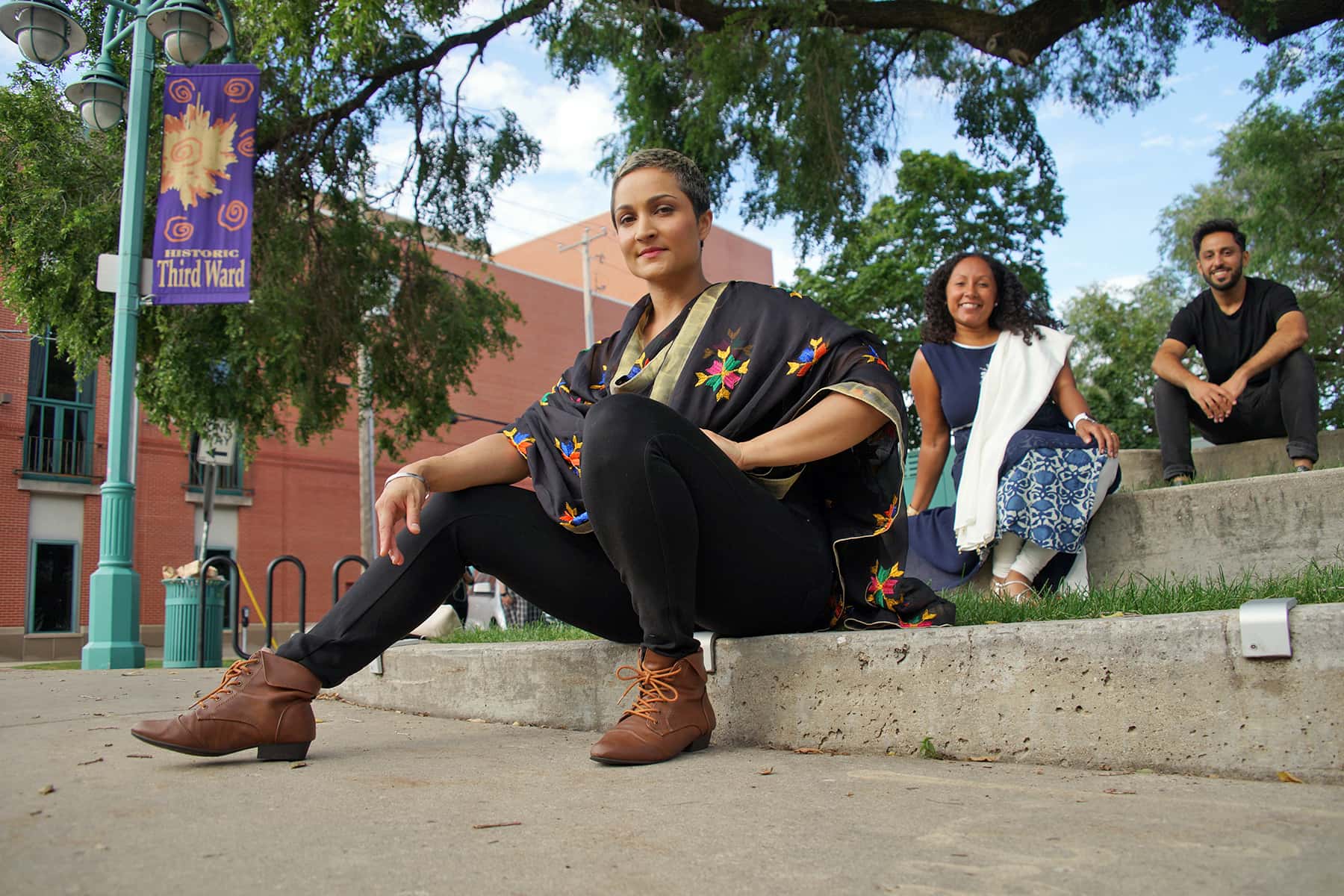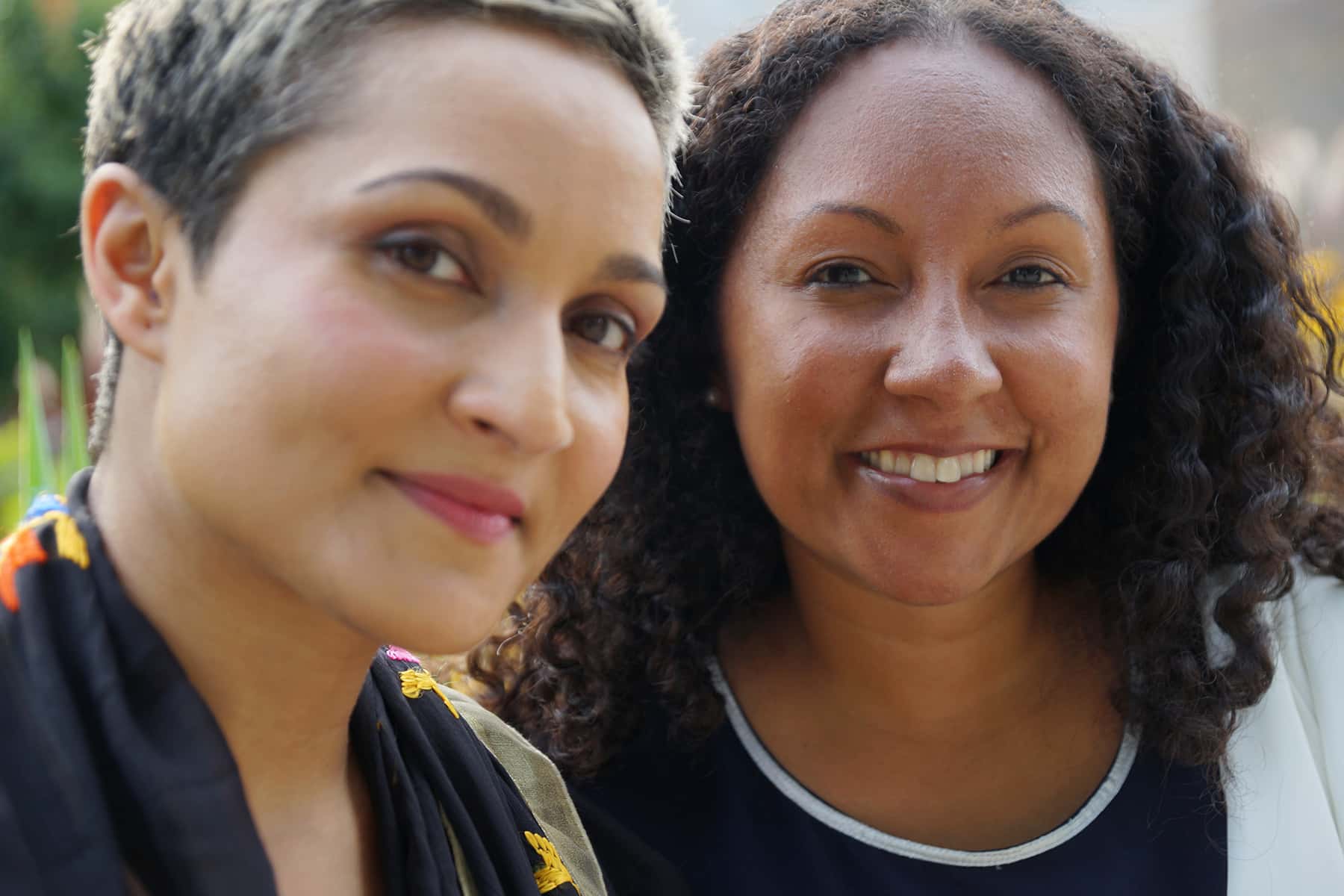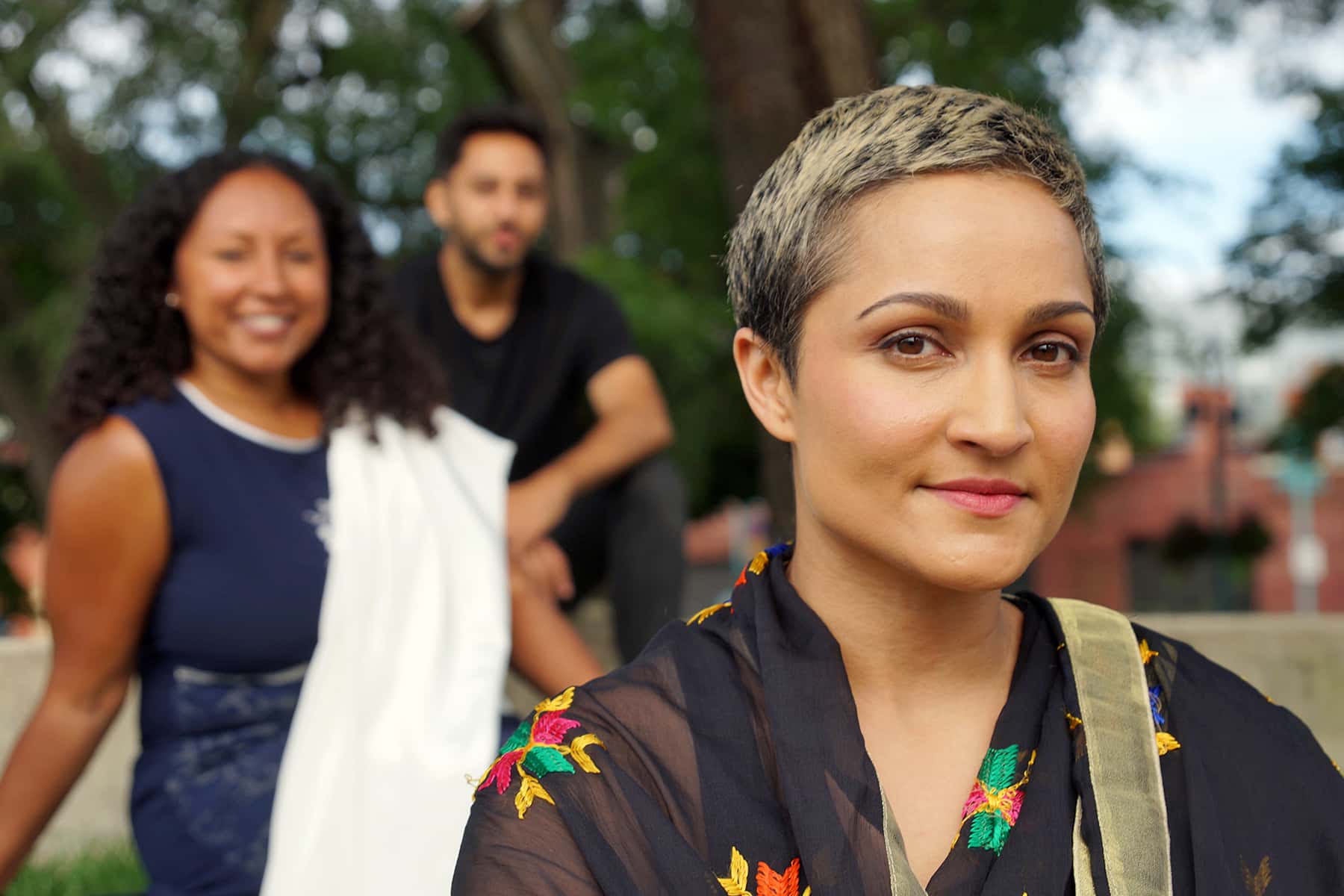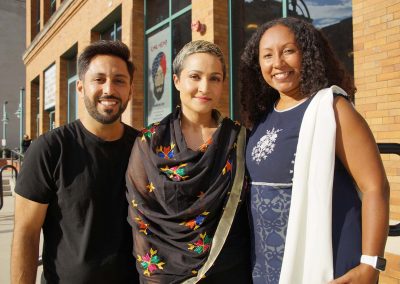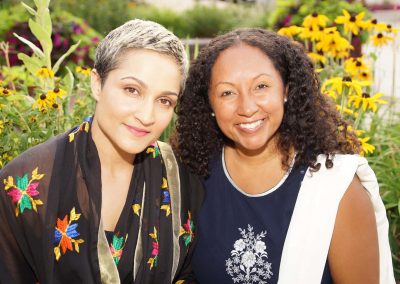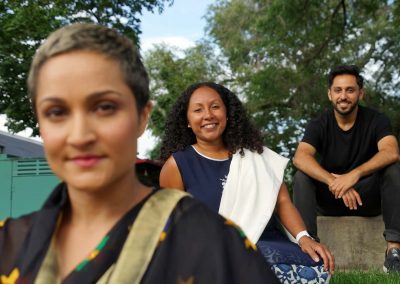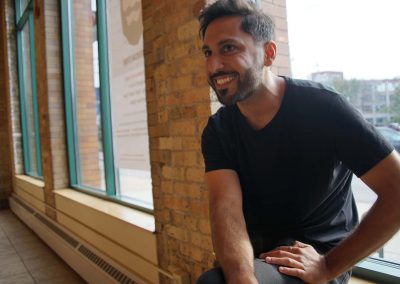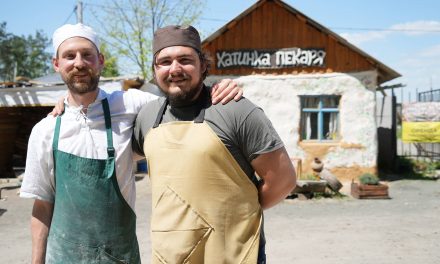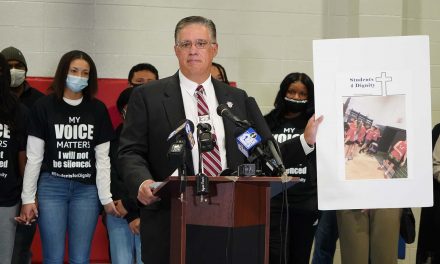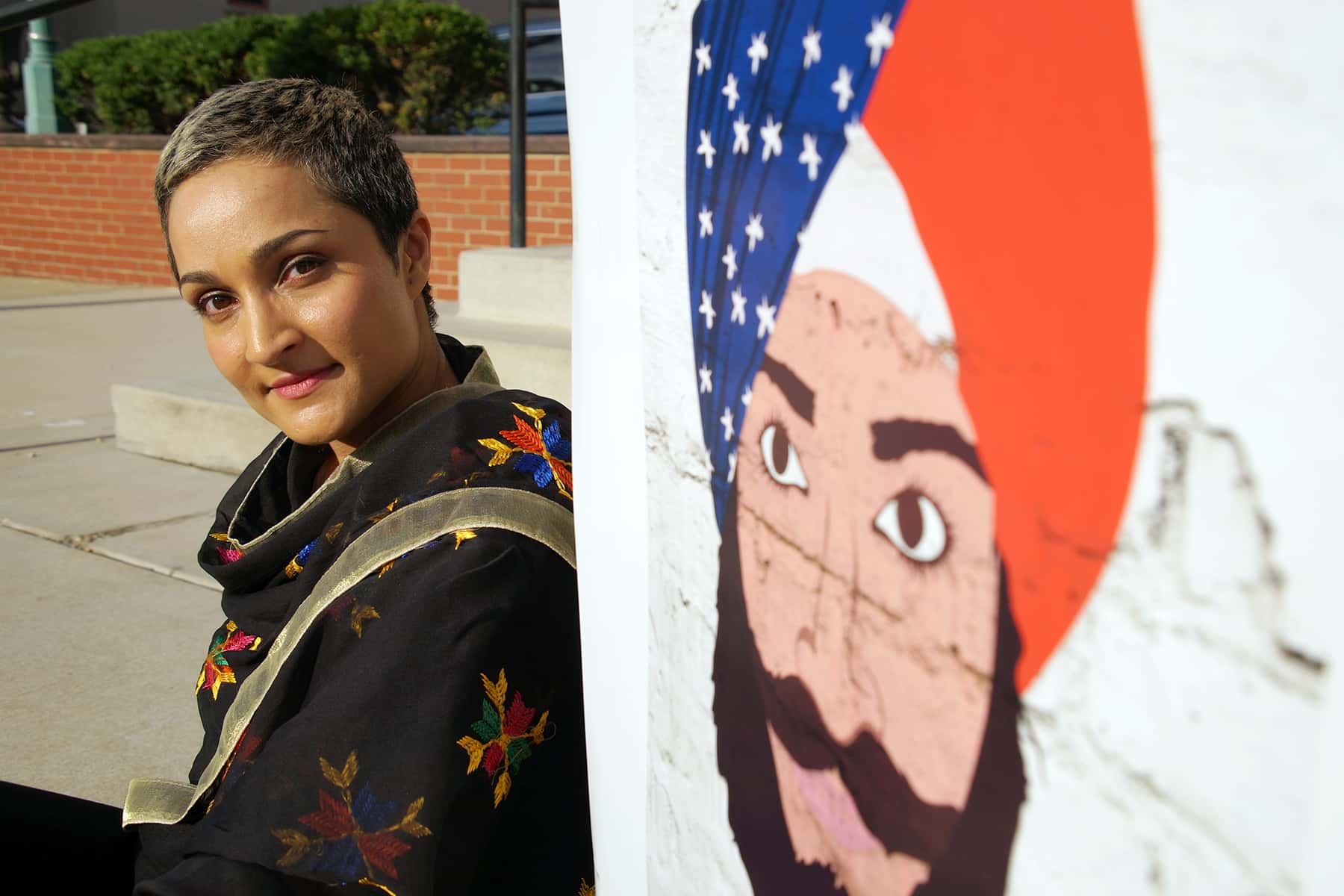
As a Punjabi Sikh writer, actor, director, author, and activist Sundeep Morrison’s work focuses on social justice, cultural friction, inter-ethnic family dynamics, and feminism.
Morrison is a child of Sikh immigrant parents, who are deeply connected to the Wisconsin Sikh community and were affected by the Oak Creek tragedy. She performed her celebrated one-woman play “Rag Head: An American Story” in Milwaukee at the Broadway Theatre Center on August 3 and 4, as a way to shed light on the often misunderstood and misrepresented Sikh community. Produced by Deanna Singh in partnership with the Interfaith Conference of Greater Milwaukee, Morrison’s dramatic expression presented the daily trauma that people in our multiracial society continue to face.
Q&A with Sundeep Morrison
Milwaukee Independent: Who had the biggest impact on your childhood, and do you still see that influence on your life today?
Sundeep Morrison: My parents and my maternal grandmother had the biggest impact on me as a child. As Indian Immigrant Sikhs, my parents faced many obstacles in creating a life in America, and have shown me the power of perseverance and a strong work ethic. My grandmother instilled a love for my deep eastern roots which heavily influence my story telling.
Milwaukee Independent: What were you surprised to learn about yourself as you explored your identity after moving to America?
Sundeep Morrison: I was born and raised in Canada and I feel post 9-11 xenophobia became more prevalent especially in the U.S. I witnessed my parents having a harder time, being visible minorities especially my father who wears a turban.
Milwaukee Independent: Has cultural trauma had an impact on your life? And, how important is creativity to your work?
Sundeep Morrison: The experience of the south Asian diaspora is multi layered. I feel my experiences navigating and deconstructing the effects of post-colonial sentiments is an ongoing process and it informs my writing.
Milwaukee Independent: What have you seen as the most common misperception white society has about people of the Sikh faith?
Sundeep Morrison: The Sikh faith is often misunderstood and misrepresented, especially in the media. Sikhs are often thought of as, “terrorists,” and According to the Sikh Coalition there are roughly 500,000 American Sikhs; many of which have been subjected to xenophobic harassment or violence. Sadly over 70% of Americans do not know who Sikhs are or what our faith entails.
Milwaukee Independent: How were you connected to the 2012 Sikh Gurdwara massacre in Oak Creek, and how does the tragedy affect you today?
Sundeep Morrison: My parents are members of the Oak Creek Sikh Temple. On the morning of the shooting my parents were attending service at a Gurdwara as they do every Sunday. My mother does Shabad Kirtan (singing Sikh devotional hymns), I was at home in LA when I received a frantic call from my brother in Wisconsin telling me that a shooting had taken place. That fateful day they attended a service at another Gurdwara in Wisconsin, (there are only three places of worship in Wisconsin) I couldn’t help but wonder what would’ve happened to my parents if they were present. Following the tragedy, I found myself in a state of depression and constant worry over my parents. In our current social- political climate I still worry about their well-being.
Milwaukee Independent: How did you choose the title of your play knowing the slang connotation of “Rag Head,” and what have the reactions been?
Sundeep Morrison: When I was a little girl my father drove a taxi cab. After picking me up from school one day, we were stopped at a red light and a man next to us began yelling at my father. He yelled at my father calling him a “Rag Head.” I was baffled as I had never heard that term before, I knew what a rag was and what a head was but what my father wore on his head was a sacred crown of cloth. After my father painfully explained to me why the man had called him that, it was a moment that stuck with me. Sadly, that wasn’t the last time I heard the term uttered. Many people while speaking candidly amongst friends or family don’t realize the damage that is done when they hear hate speech and elect to stay silent rather than calling people out on it. To utter hateful words is horrible, but to hear them and remain silent makes one culpable. The only way to chip away and break down hate is to disrupt the narrative. Many people don’t know who Sikhs are, or the significance of turban as an article of faith. They do however know who people are referring to when they hear the term RAG HEAD. The name was purposefully chosen to disrupt this type of hate speech against Sikhs.
Milwaukee Independent: What is the core message behind your idea for “Rag Head: An American Story,” and what do you want Milwaukee audiences to come away with?
Sundeep Morrison: The core message of RAG HEAD is to highlight the xenophobia that is ever so prevalent in our country. I wanted to show the dangers of toxic political rhetoric and how it is echoed in society with often devastating and dangerous effects. My hope is that the audience walks away with a deeper understanding of the Sikh faith and reflects on what it means to be an American.
Milwaukee Independent: What has been the biggest challenge for acting in a one-person play that you wrote?
Sundeep Morrison: I have been fortunate for all the support I have with the show. Because it is a personal piece inspired by the Oak Creek Sikh community, I feel it is a tremendous honor to bring the show to Milwaukee. It’s always been paramount to me to operate with utmost respect and authenticity, when it comes to sharing this story.
Milwaukee Independent: What is your reaction when hearing racist rhetoric telling people to “go back” to their countries of origin?
Sundeep Morrison: “Go back to your country,” is a term that I’ve heard many times, especially shouted at my parents. It’s sad and disgusting when the sitting president utters the same phrase toward four U.S. congresswomen who are women of color and U.S. citizens, it further galvanizes white nationalist hate in the U.S.
Milwaukee Independent: Do you still have hope for America? And, what one thing do you think the average person could do to improve conditions?
Sundeep Morrison: As a mother, I must have hope for the sake of my children. I believe we can exist in an America that embraces and fosters unity, but the pragmatist in me knows that it will take work. I feel the onus is on our fellow citizens, especially white people to shift the word ally and advocate from a noun to a verb. White citizens must be ready to disrupt the narrative and become actively anti-racist. I fell the common citizen must use their voice and speak up in situations of prejudice and bias, even if it causes them discomfort.

